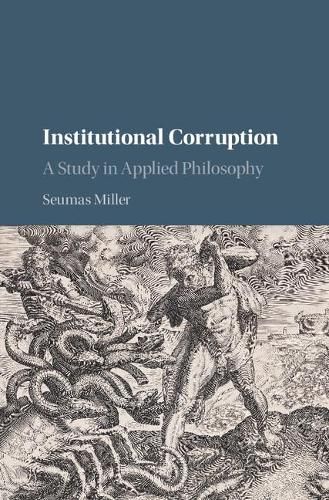Readings Newsletter
Become a Readings Member to make your shopping experience even easier.
Sign in or sign up for free!
You’re not far away from qualifying for FREE standard shipping within Australia
You’ve qualified for FREE standard shipping within Australia
The cart is loading…






In this book, Seumas Miller develops distinctive philosophical analyses of corruption, collective responsibility and integrity systems, and applies them to cases in both the public and the private sectors. Using numerous well-known examples of institutional corruption, he explores a variety of actual and potential anti-corruption measures. The result is a wide-ranging, theoretically sophisticated and empirically informed work on institutional corruption and how to combat it. Part I defines the key concepts of corruption, power, collective responsibility, bribery, abuse of authority and nepotism; Part II discusses anti-corruption and integrity systems, corruption investigations and whistle-blowing; and Part III focuses on corruption and anti-corruption in specific institutional settings, namely policing, finance, business and government. Integrating theory with practical approaches, this book will be important for those interested in the philosophy and ethics of corruption as well as for those who work to combat it.
$9.00 standard shipping within Australia
FREE standard shipping within Australia for orders over $100.00
Express & International shipping calculated at checkout
In this book, Seumas Miller develops distinctive philosophical analyses of corruption, collective responsibility and integrity systems, and applies them to cases in both the public and the private sectors. Using numerous well-known examples of institutional corruption, he explores a variety of actual and potential anti-corruption measures. The result is a wide-ranging, theoretically sophisticated and empirically informed work on institutional corruption and how to combat it. Part I defines the key concepts of corruption, power, collective responsibility, bribery, abuse of authority and nepotism; Part II discusses anti-corruption and integrity systems, corruption investigations and whistle-blowing; and Part III focuses on corruption and anti-corruption in specific institutional settings, namely policing, finance, business and government. Integrating theory with practical approaches, this book will be important for those interested in the philosophy and ethics of corruption as well as for those who work to combat it.